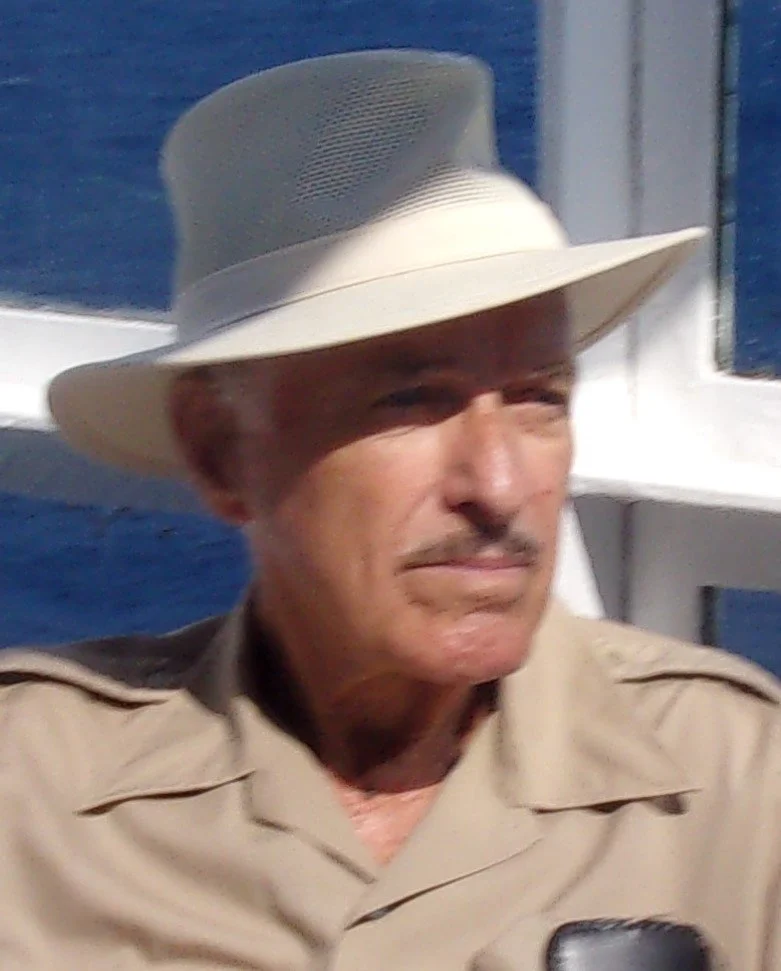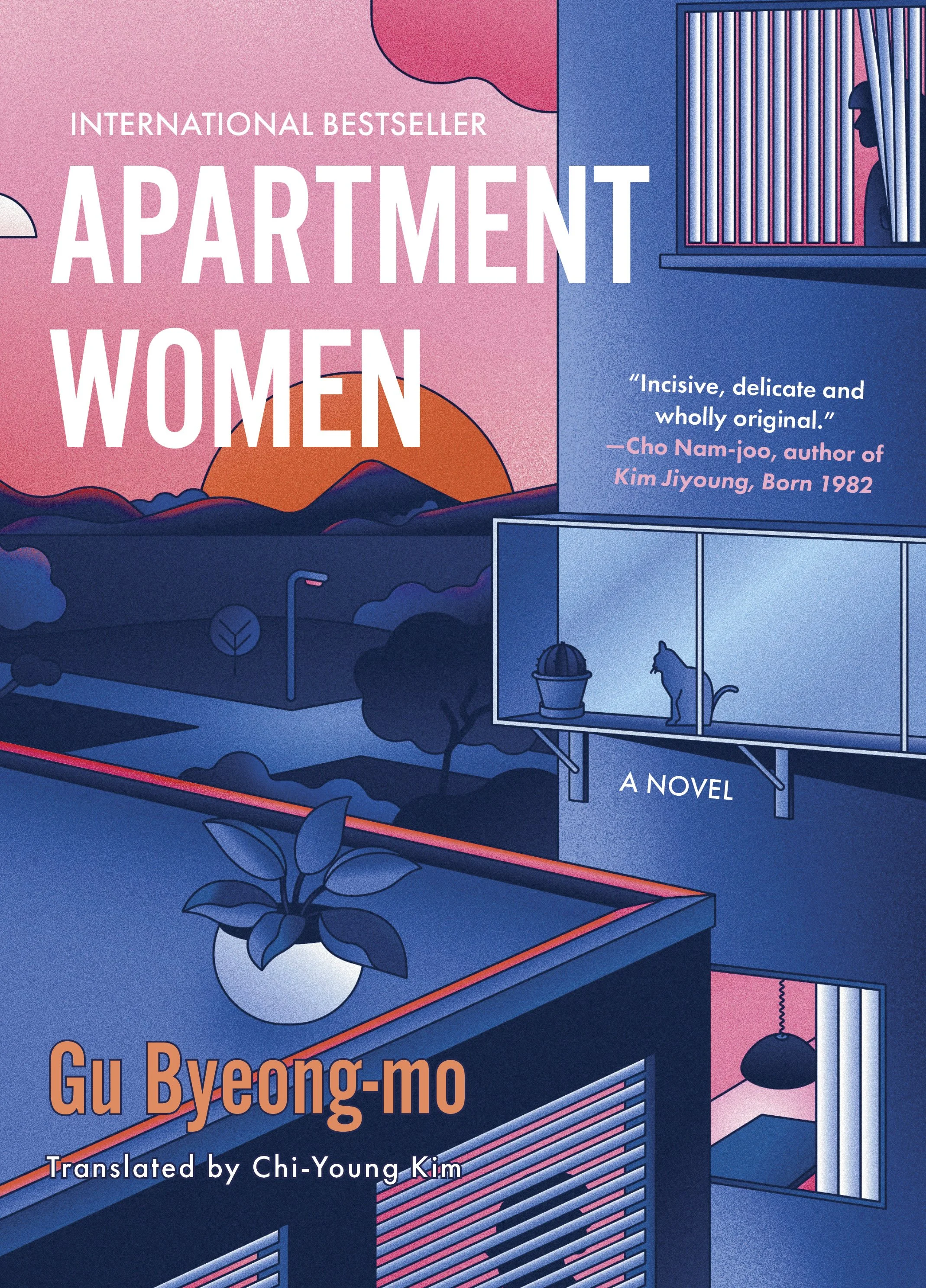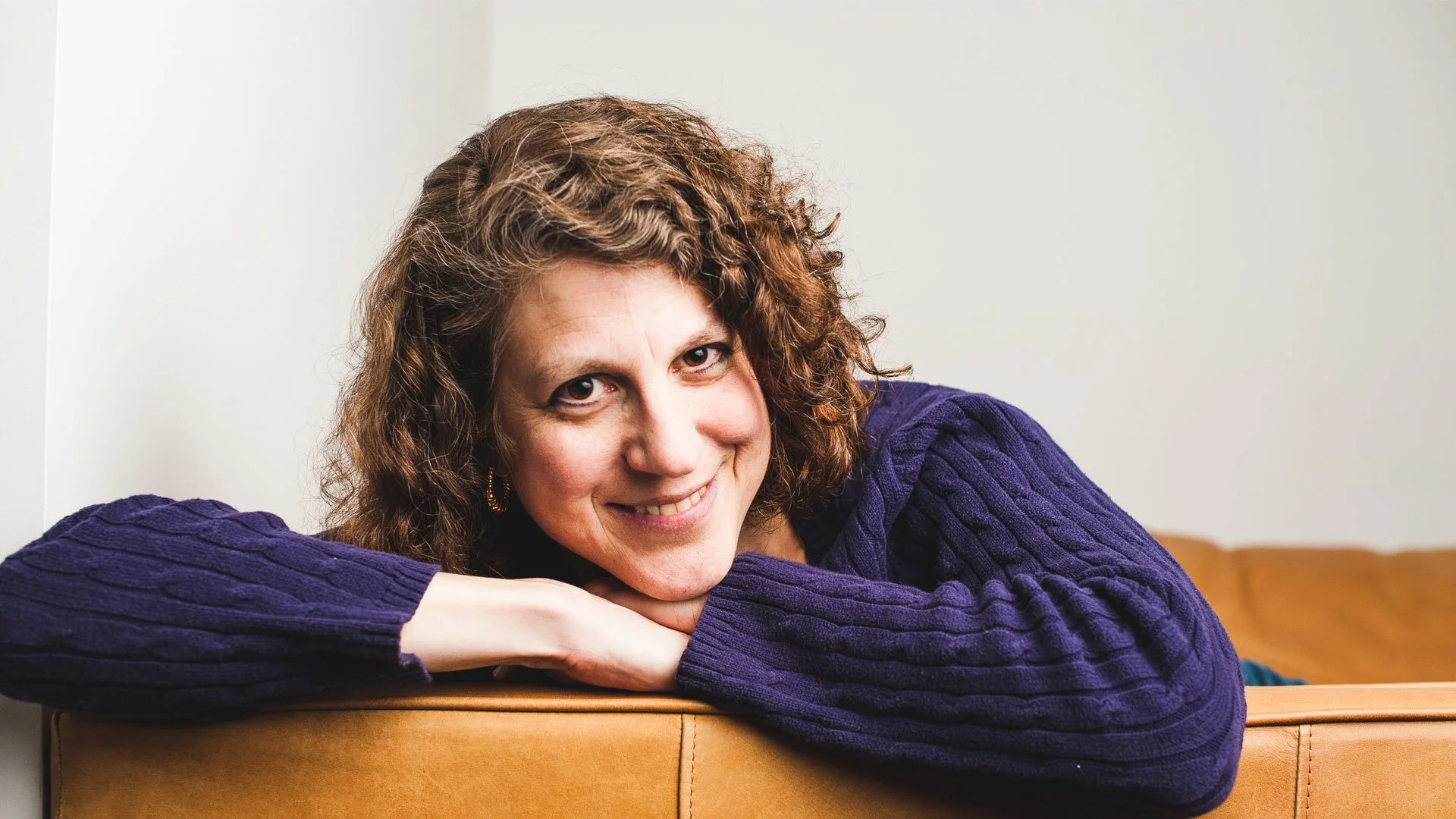Publication Date: November 5, 2024
Publisher: Hanover Square Press
The Silent Patient meets Rebecca in this twisty debut about the mysterious death of a woman with congenital analgesia, a rare condition where she can't feel any pain – and an obsessive journalist who will stop at nothing to uncover her most dangerous secrets.
Meet Eva, who can’t feel pain, and Anna, who can’t escape it.
Everyone has heard about the case of Eva Reid. Ever since she was born, she’s been immune to physical pain – she can get a paper cut, break a limb, and even give birth without feeling a single thing. Her rare condition has long-captivated reporters and researchers – including Dr. Nate Reid, Eva’s husband and acclaimed scientist renowned for his work in The Pain Laboratory. Also among them is Anna Tate, a ruthless journalist with a dark past of her own.
When Eva is suddenly found dead inside her home, it raises a flurry of questions around the last night of her life – and who might’ve been involved. Anna finds herself growing increasingly obsessed with Eva’s case: her cloistered, painless existence, her promising career as a psychotherapist, and especially her toxic relationship to Dr. Reid, whom she met and married as his former patient. But what other secrets could they be hiding?
When Dr. Reid embarks on the process of writing a book about Eva, Anna makes sure she’s first in line to work on the project with him. As she slowly inserts herself into their home and seeks to uncover what’s fact and what’s fiction, shocking discoveries await her – and not everyone may come out unscathed…
Excerpt
1
7 December 2022, 7:30 p.m.
I am a ghost in the room tonight. A shadow no one will notice, exactly as it should be. Guests arrive, flowing toward the heat and hum of the glass atrium at the back of the bookshop. Turning my back to them, I retreat farther into the deserted aisles of Anthropology, reach for a slim volume, inhale the flutter of air as my thumb zips through the pages. I wait for that aroma, dry and sweet, biscuits and sawdust to work its usual magic, a sensory hit that never fails to reassure me. Until now. Books used to be an escape. A window to another world that for a short time might alter me in some unfathomable way. But I’ve been too close to them, seen how they can taint and twist the truth.
I slip into the atrium packed with a hundred or so more guests. It is easy enough to lose myself here, hovering at the back behind a pillar. I’ve been paid to melt away into the ether, but I doubt they’ll be looking out for me.
So why risk coming along at all, what will it solve? His book is displayed on a table next to me in a tower of carefully spiraled spines, a DNA strand to show every angle. On top a hardback copy is perched upright, his name embossed across the front in glossy black. I imagine teasing out the bottom copy, watching them topple to the floor. The cover is luxuriant, creamy, a lily in one corner. It could be a bereavement card.
In a way, it is. Loss in fifty shades of vanilla. In those pages resides a version of his wife, Eva, much-loved, much-missed, much-constructed, packaged up for public consumption. The other ghost in the room tonight.
It is his back I see first as he walks through the crowd. Briefly he turns around and from my vantage point I watch him, this stranger who only three months ago I thought I knew so well. He pauses to chat to someone, draws his fingers through the back of his hair, letting his hand rest at the nape of his neck, something I know he does when he’s tired or anxious. He looks a little older this evening, a little grayer, a scattering of salt at his temples, a silvery haze of stubble at his jawbone. I see now, or is it wishful thinking, how the past few months have punished him too. He is leaner perhaps, his face more angular. His brow bones protrude a little, lending him an almost hawkish glare.
From my vantage point, I spy an attentive young woman as she approaches him, offering up an open copy of the memoir, the shadow of a smile as they connect. Even from here I can see she is transfixed, caught up in whatever he is telling her, that way he has diverted the conversation and channeling it elsewhere.
He pauses, bites his lip, and I see something new in his expression, a tentativeness perhaps as he excuses himself from the guest, disappears into his public persona. Slowly he climbs the spiral staircase to a gallery that circles the room and by the time he’s at the top, he has become Dr. Nate Reid, any shade of hesitation vanished.
Priya, his editor, is already there, smiling down at the crowd. Everything about her is sharp and precise, the cut of her pale silk dress cinched at the waist, the razored line of her dark glossy bob tucked neatly behind each ear. She taps her ring against a champagne flute and the clamor subsides.
“Hello, everyone. Thanks so much for coming tonight. I’d like to start by saying what a privilege and an honour it has been working on this book.” She turns and raises her glass to him, her hand touching his arm.
“Nate’s instinct for storytelling is rare and inspiring. Many of us are used to hearing about Dr. Reid as a distinguished neuroscientist and TV personality, so it has been even more impressive to discover his gift for personal writing, his unflinching honesty and extraordinary ability to let the reader in.”
As she hands it over to him, there’s a peal of applause. Unflinching honesty? Here’s to fantasy fiction.
He clears his throat and steps toward the balcony edge. “I’d like to return Priya’s compliment and say how deeply satisfying it has been collaborating with her.” He touches her hand. “One silver lining in my journey is that it has brought me here tonight. To be here with so many friends who have given me their unstinting support. In a strange sort of way, it’s like Eva’s last gift to me. I feel very loved.”
He falters, falls silent for a moment.
Priya passes him a glass of water and there is a tingling anticipation as the silence stretches.
“When I started this book, I was overwhelmed. My first thought was, why would anyone do this? Then I realized here is a golden opportunity. My chance to help others in a similar situation. There are more of us around than you’d think.” He looks down at us, as if seeking out other grief-stricken souls in the crowd. “No one can really bear the truth that every minute of our life hangs by a thread. However much we think we can script our own existence and try to ensure nothing bad can ever happen to us, it does and it will.”
His index finger silently strikes the iron balcony rail, in sync with the rhythm of his words. “To each and every one of us. Tonight, tomorrow, at some point. Of course, that’s why memoirs about grief are so popular. They’re a window to a world that one day we’ll all inhabit, if we haven’t already. It’s only a matter of time.” He grips a copy of the book, raising it up.
“Eva was an extraordinary person, someone who radiated optimism, a hunger for life. As many of you are aware, she was best known as a sculptor, her work was widely regarded. She also made headlines around the world when I first diagnosed her with a rare medical condition, congenital analgesia, the inability to experience pain. But pain is nature’s alarm system helping to protect us, or as C.S. Lewis once put it, ‘God’s megaphone to rouse a deaf world.’ The value of pain is only evident when you see its absence. Which was why Eva was the most fearless person I ever knew, but the most vulnerable too.”
Guests lean in, heads tilt and crane. One woman tucks loose hair behind her ear in the hope of catching more. That voice. Gentle, well-spoken. Articulate and low. Gravel and smoke. He’s lectured around the world, been interviewed by the New York Times and doorstepped by the Sun. As his reputation grows, his words became quieter, loaded with a particular power.
A waitress passes with a tray of champagne and reluctantly I shake my head. It’s been five months since I touched a drink. Five months since that night at Algos House. Now I can’t help wondering if everything would have turned out quite as it did if I’d kept a clear head the whole time. I sip on a flute of orange juice, watch as he effortlessly ramps up his performance.
“I wanted to examine how you carry on after something like this, how to accept the horror of it. To come back home one evening and discover, in an instant, that my wife had died. How do you begin to make sense of it?”
How indeed.
“Death is the great leveler, even for those who appear to be invincible.” He pauses, eyes shining. “Because it shows us who we really are, and reveals how much we truly love the person we have lost. Here’s to Eva. Tonight is for you.”
He raises his glass as a tide of rapturous applause swells. It takes a moment or two, as the clapping subsides, to identify another noise in the crowd. A shriek. Like a contagion it spreads through the room, palpable and urgent.
“Murderer! We know what you did!”
I swallow hard. There are ripples of movement close to the door, security staff swarm, a scuffle ensues. “Justice for my sister!” she shouts, saying something else inaudible before she is bundled outside and removed from the event, leaving the crowd murmuring in her wake. I know I should leave but I’m frozen to the spot.
Back up at the gallery, Priya steps steadily in front of him. “Well, I guess grief affects us all in different ways,” she says. “And hopefully Nate’s book will offer comfort and understanding to anyone who’s suffered great loss. As a publisher, I couldn’t ask for more. Nate’s on his way down now to sign copies so do buy one and see what all the fuss is about.”
He appears, unphased, unflustered, his enigmatic reserve intact. There is nothing like the fury of a scorned woman to add intrigue, allure even. Priya knows this, so does he. Scandal swirls around him, somehow raising his stock rather than dimming it. I watch as he works the room.
“Well, that was all highly entertaining, wasn’t it?” says a woman next to me, her breath ripe with wine and crisps. “Who was she?”
“I’m not sure,” I lie. “Eva’s sister, I guess?”
“Ah, the disgruntled sibling desperate for the true story to be told. Delicious.” She regards me for a moment and there’s a flicker of recognition in her eyes.
She seems familiar, but I can’t quite place her. “Maybe a bit misery memoir for my liking,” she says, her tone conspiratorial. “But a great idea. Whoever got him to do it was completely on the money. Even more so if the sister doesn’t like it. I’m Jane. Jane Burton by the way. Mail On Sunday. And you?”
I should have known; the over-highlighted hair and green quilt jacket are a giveaway. She swooshes the bubbles around her mouth and studies me as if I’m a puzzle to be solved. There’s that familiar glint in her eyes that I have grown to recognize down the years, a precise and very familiar brand of curiosity, watching from the sidelines, prying, insinuating, picking away. It’s part of the job, until it becomes part of you.
“So you’re covering the book,” I ask.
“Yes, we ran first serial last Sunday. Triumph over tragedy, the usual.” She shrugs lightly. “Still, if you cry, you buy, they say.” She smiles briefly, moves in a little closer so I can see a smear of fuchsia lipstick on her front tooth. I’m repelled by something in her that feels too close to home. I shudder slightly, step away from her, but she inches closer, as if we’re both coconspirators.
“Good-looking, isn’t he? In that rather obvious way.” She crooks her head to one side, her eyes slide over him.
“I guess, I hadn’t really noticed.”
“What a horrible thing to happen. I don’t think you ever get over something like that, do you?”
“I hear he’s doing pretty well.”
“I wonder if he wrote it all himself?” Her steady look unnerves me. “A lot of them get help these days, don’t they?”
“I wouldn’t know. If they choose to have a ghostwriter, it’s usually kept a secret.” A flush prickles my neck and spreads upward.
I make my excuses and head for the exit, via Memoir & Autobiography for old time’s sake. The siren-call of those glittering lives on display spilling all—fame, grief, misery and addiction. “Read all about me, me, me,” they seem to echo, screaming for attention. I walk to the end of the aisle and stop in my tracks. There he is with Priya, standing just yards away.
Something in me deflates, and I know that it’s all over. He talks quietly, rapidly, and Priya nods in affirmation, her head dipped.
They carry on, deep in conversation. As I walk briskly past them toward the door, he looks up and our eyes lock. Priya reaches for his arm, but he pushes her away, starts toward me as I turn to the exit.
“Wait,” he shouts after me. But I don’t turn back. I have spent too long under his skin and now it’s time to burrow out. I won’t be another acolyte like Priya. I don’t deserve Eva’s fate.
I take off my heels, stuff them into my bag and start to run. Away from him. Still, I hear his voice, urgent and cracked, calling my name. I turn a corner and break into a sprint, my bare soles slap the cold wet pavement. Keep going, I tell myself, my breath ragged, my lungs burning. Only two questions keep circling.
What did you do to Eva?
What could you do to me?
Excerpted from YOU CAN’T HURT ME by Emma Cook, Copyright © 2024 by Emma Cook. Published by Hanover Square Press, an imprint of HarperCollins.
Buy on Amazon Kindle | Audible | Hardcover | Paperback | Bookshop.org


























































